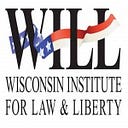A New Bill in the Wisconsin Legislature Would Expand School Choice
By: Will Flanders
The pandemic has emphasized the importance of having many educational options available to families. Private schools, which have been more willing to keep their doors open than public schools throughout the pandemic, are one such critical option. Open enrollment into neighboring districts that may offer an alternative model of education are another one. Yet for far too many families, these options, that best fit the needs of their children, remain out of reach. Instead, families are forced to continue to fund their local public schools with tax dollars, even as they refuse to open at the behest of unions. A new bill from Senator Dale Kooyenga seeks to change that, at least for the 2021–22 school year.
WILL has long been a proponent of increasing the income limit for the WPCP. Currently, only families who make less than 220% of the federal poverty limit are eligible to participate in the Wisconsin Parental Choice Program (WPCP). The WPCP offers families a voucher to send their children to participating private schools throughout the state at no additional cost. While the program is laudable in it’s goal to serve low-income families, the bottom line is that the cost of private education is out of the realm of possibility for many in the middle class as well. While Wisconsin has relatively low-cost private schools compared to the rest of the country, the average annual cost for an elementary school is $3,445 and the average cost of high school is $8,110 according to the most recent data available. These are expenses that often only the wealthiest can afford.
It is also fundamentally unfair that some children in the state are eligible for a voucher at a particular income level, while others are not. A child who lives just north of Interstate 94 in Milwaukee can access a voucher with a family income of up to 300% of the federal poverty limit. However, a child that lives just a couple miles away south of I-94 in West Milwaukee might not be eligible. The same scenario could play out in Racine, where a child within the city would be eligible for the Racine Parental Choice Program, but one who happens to live just outside the Unified District would not be.
It is high time to create a statewide eligibility standard. Kooyenga’s bill does just that by raising the eligibility standard to 300% of the federal poverty limit for the WPCP, matching the programs in Milwaukee and Racine. Increasing the income limits would increase the pool of students eligible to participate, potentially making it more palatable for schools in more rural parts of the state to join the program. Previous WILL research has highlighted the lack of options in these areas, where student performance often looks more like Milwaukee than the suburbs, and there is desperate need for more alternatives.
The bill would also make important changes to the open enrollment program that would make it easier for families to access other public school districts. Under current law, families utilizing the alternate application process can have their application rejected if the district that would be losing the student does not agree that the move is in the best interest of the child. Because districts lose a portion of their revenue for children who enroll into another district, a perverse incentive exists for districts to deny students the chance to leave. The bill would change the law so that a student’s “home district” can no longer veto a move to another district by claiming it isn’t in the child’s best interest, a recommendation we highlighted in our recently released report “Public School Choice in Wisconsin: A Work in Progress.” By empowering parents to have greater say in such an important decision, this provision would substantially move the ball in the direction of educational freedom.
Through learning pods, at home education, and a host of other educational alternatives, the pandemic has made it clearer than ever before that antiquated models of education based on ZIP code should be left as relics of the past. Expanding access to educational choice through the legislative process is undoubtedly the right path forward. This bill takes an important, albeit temporary, step toward empowering parents to take greater control of their child’s education. Lawmakers would be wise to quickly advance this “kid first” legislation and put it on Governor Evers’ desk.
Flanders is research director at the Wisconsin Institute for Law & Liberty.
